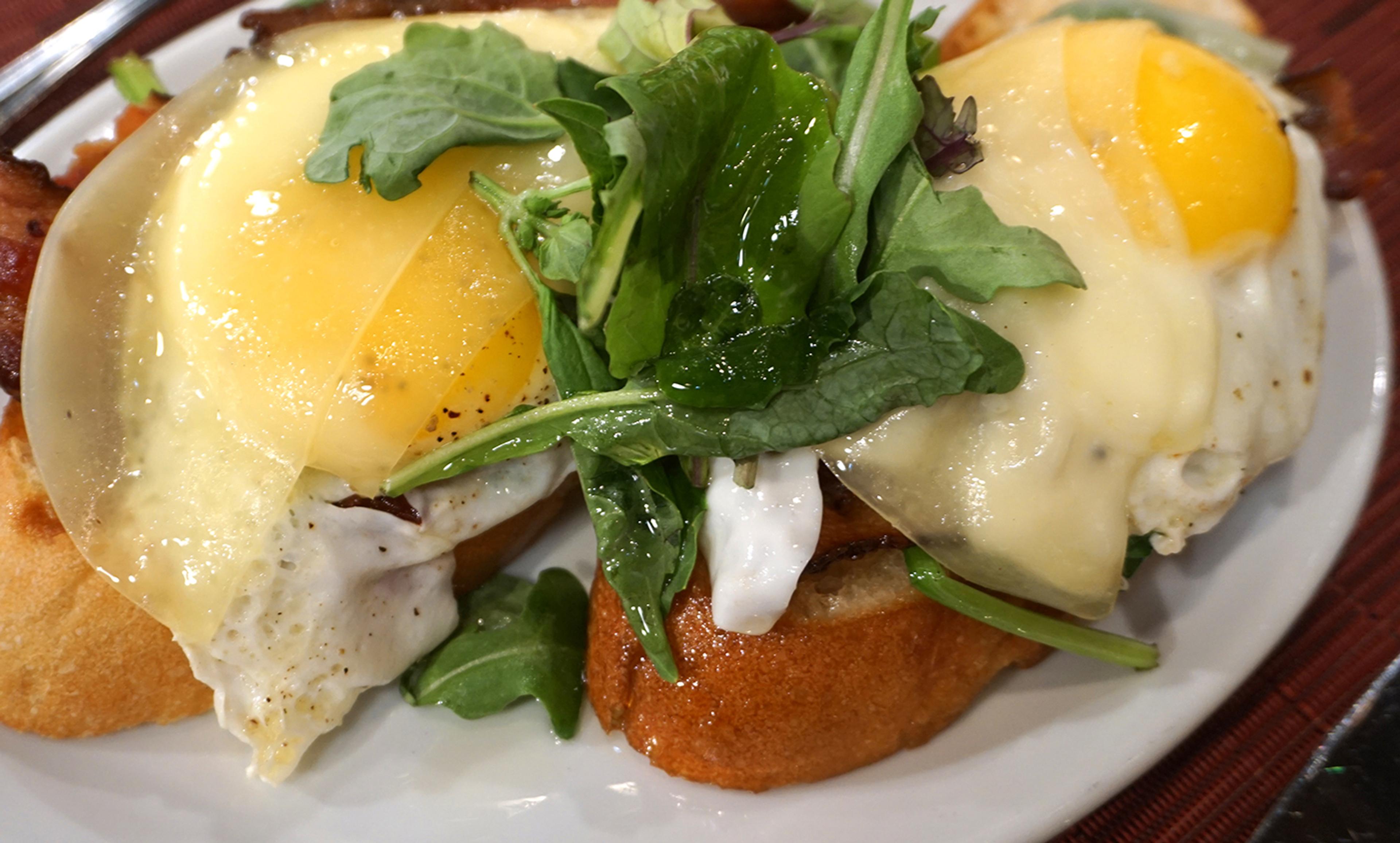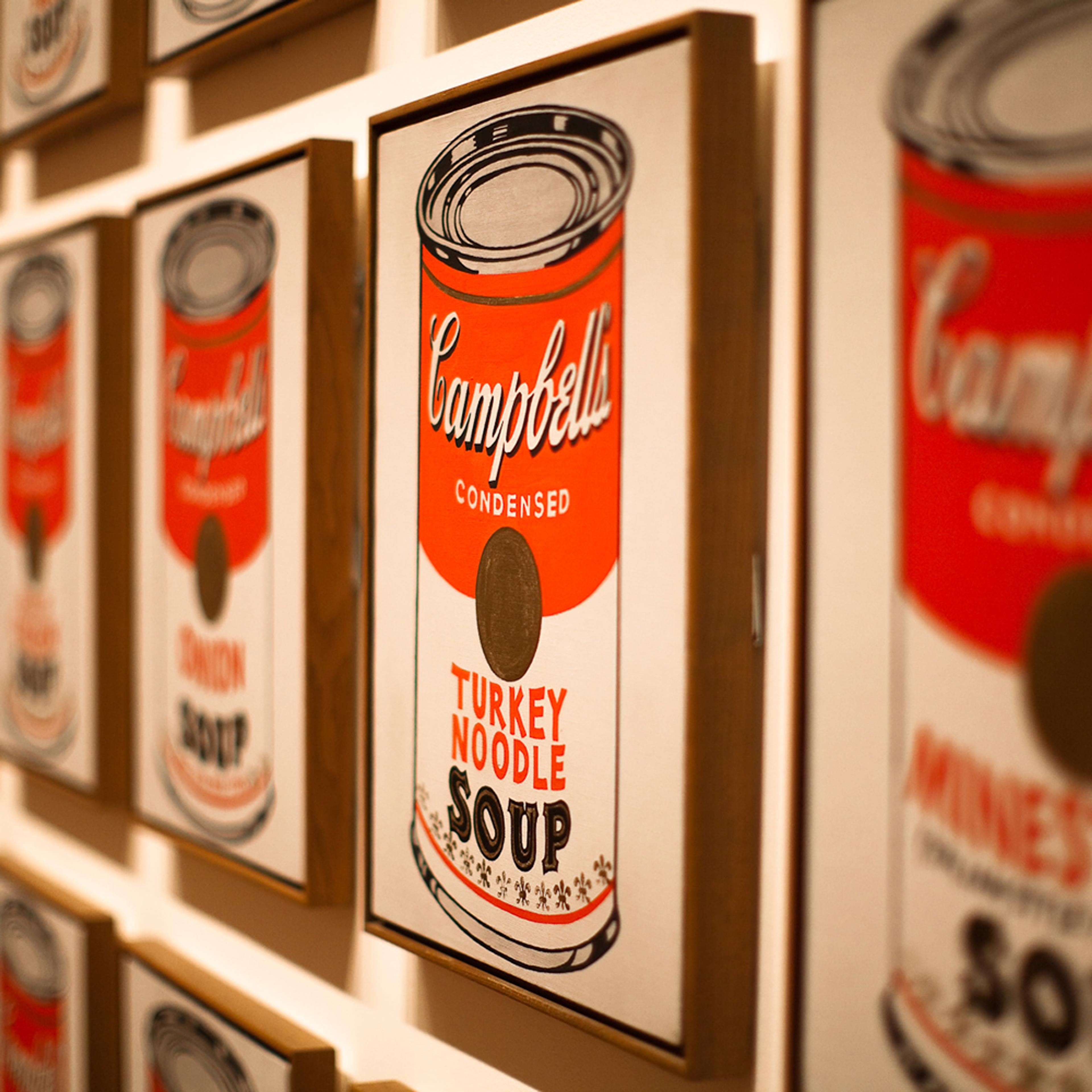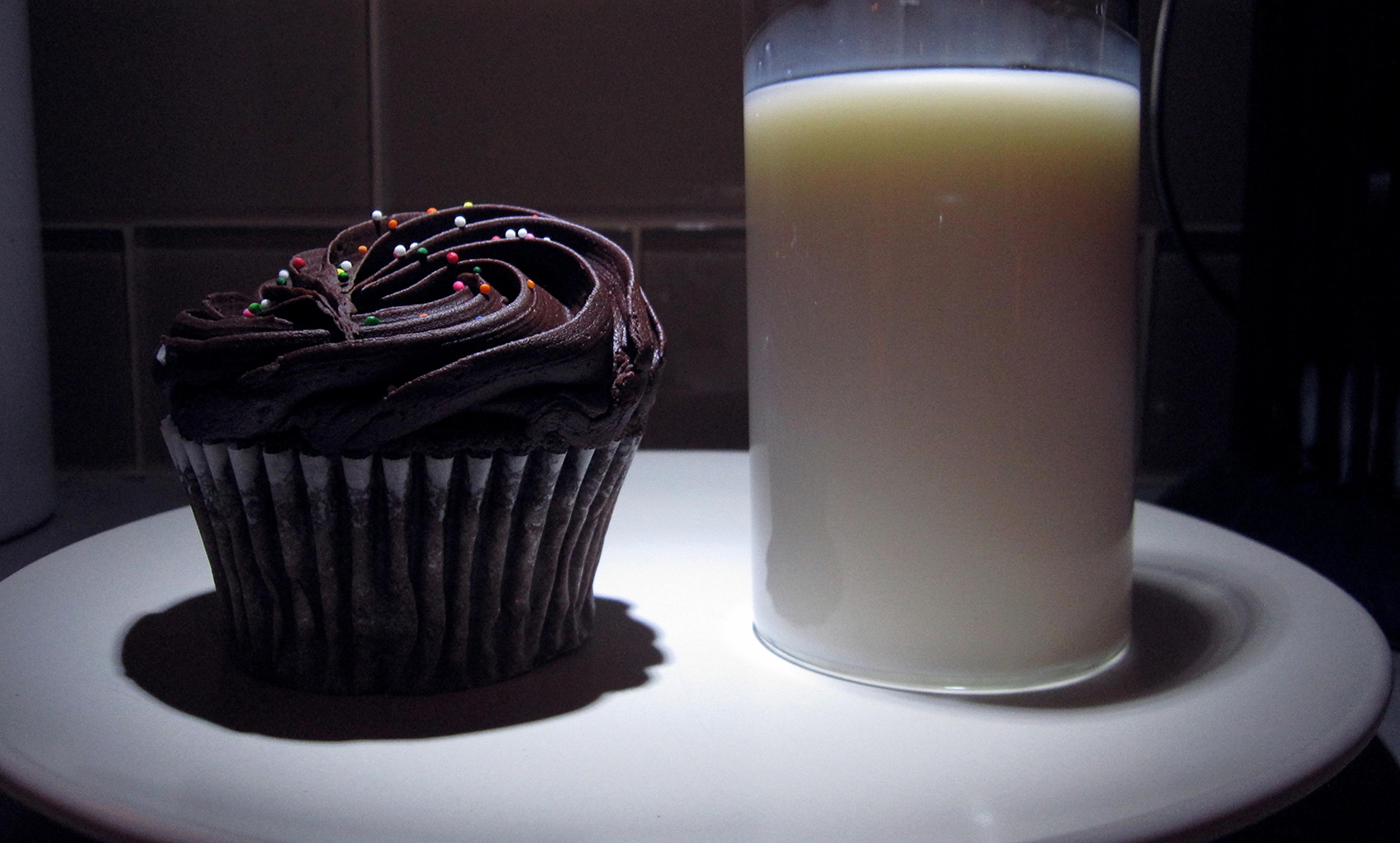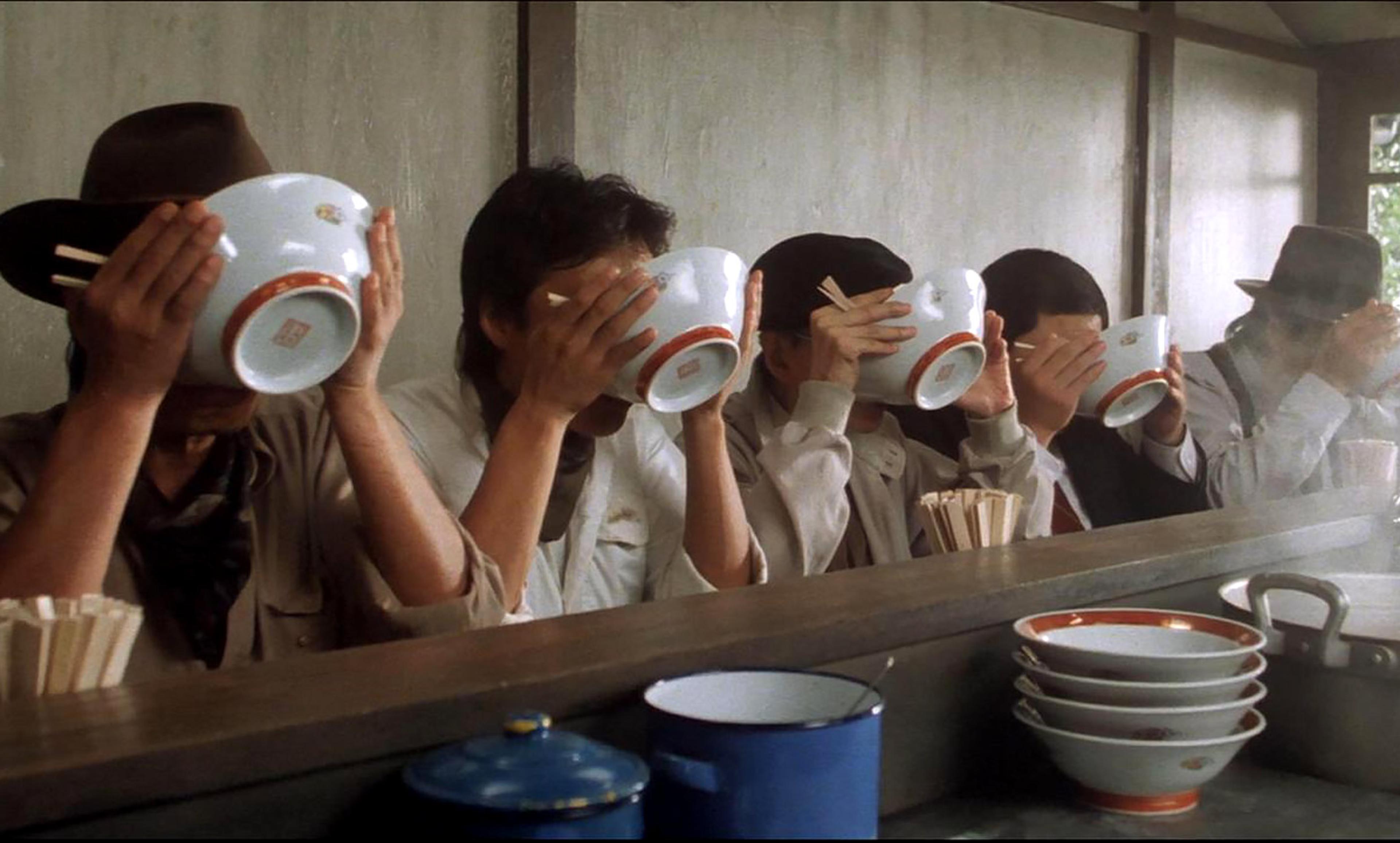Kurman Communications/Flickr
On a segment of his new TV show, Cooked, the ‘real food’ guru Michael Pollan learns to braise from the up-and-coming chef and food writer Samin Nosrat. The background is Berkeley Aspirational: cut flowers contrasting with wood countertops, fresh herbs spilling out from half-filled water jars – everything doing that Berkeley thing of reminding you how beautiful your life could be. But isn’t.
As the two dice onions, Nosrat says: ‘We’re taking the things that aren’t immediately delicious and working flavour into them to make them delicious and nutritious.’ In her few minutes on screen, Nosrat repeats the word delicious four times.
Delicious. With nary a plosive in sight after that first soft ‘d’, the syllables slush together somewhere in the jowls before being … ejected … by a mouth that maybe sort of expected them but was by no means a voluntary partner in their arrival. Phonaesthetically, it’s like biting into an apple neither crisp nor cold but mealy, like a sock full of sawdust. More than anything, it’s gross.
It’s also on trend: in the past 15 years, the number of people searching for ‘delicious’ things has tripled, according to Google. It’s everywhere: from bourgeois public radio stations to the hippest of mass-media outlets, delicious has become the sine qua non of food.
It wasn’t always this way. Julia Child would rarely even taste the souffle she had just made on her cookery show The French Chef (1963-73). But as such shows transformed into food porn in the 1990s, their conventions solidified: the ingredients pre-selected for idealised visual presentation, pre-measured and pre-prepped (there is no foreplay); the sizzling pan becoming more and more agitated; the guttural near-groan: Oh… Mmn… it smells so good.
Now, like all good porn, cookery shows need to end with the moment of bliss, the resolution of the tension built up during cooking: the lifting of the fork, the bite, the swallow, the taste… the reaction of ultimate pleasure – aka the Food Orgasm.
That orgasm did not always have to be delicious. Objective descriptions of what something tasted like, yes. And, certainly, subjective expression of the pleasure of the thing. But delicious, which sounds exactly like all the terrible words used to describe ejaculate, no.
The change came less than a decade ago, with the the democratisation of the food-porn media. PBS ceded to the rise of cable. With that shift, making bouillabaisse on the Euro-oriented show Julia and Jacques Cooking at Home gave way to the no-fuss food-queen Paula Deen uncanning tomatoes for a Hamburger Helper pasta sauce. Middlebrow cooking shows satirised on peak-time Saturday Night Live became lowbrow products as ubiquitous as American Idol.
For old-school foodies, the appropriation, popularisation and deintellectualisation of, like, their thing is the equivalent of the moment in the 1990s when frat boys started wearing Nirvana T‑shirts: the day when the cooking-show subculture went mainstream. What is an elitist food lover to do when Instagram has more than 88 million posts about #foodporn?
Enter David Chang. He of the Momofuku empire, of Michelin stars in restaurants without tablecloths, of four James Beard awards. An anti-snob snob, Chang led a revolution that encapsulated both the evolution of the US palate engendered by Childs and the post-9/11 comfort-food pandering of Next Food Network Star winners. And Chang’s signature word? You guessed it.
Chang’s influence on the foodie world cannot be overstated. Nor can it be overstated how much US chefs of his generation – from Nosrat to Eddie Huang to Action Bronson – want to emulate Chang. He is a master craftsman, first of all, but one who isn’t afraid to season his omelettes with instant ramen packets. He is inspirational to young chefs as an unpretentious everyman who has gone it alone and made it big, and aspirational to prep-school bros who love fried chicken but still need to show their exceptionalism. Nearly single-handedly, Chang has removed the stuffy undergarments from fine dining while upholding all of its class conceits with impossible-to-get reservations and sky-high bills.
It’s with Chang that disgusting deliciousness intersects with the real-food movement spawned by Pollan, Eric Schlosser, et al. Delicious is as lightweight and monochromatic a word as you can get, but Chang applies it to cooking that is deeply complex. It’s the reappropriation of cooking with a wink and a nudge, and it is perfect for a generation of hipsters raised on lowbrow-chic. Like Genesee Cream Ale in cans, bushy beards and the Big Buck Hunter arcade game, delicious is a signifier of being in the know – and in this world that means having your Niman Ranch cocktail wienie and eating it, too.
There is something serious at stake about the disingenuous appropriation of what Thomas Frank calls ‘the culture of “the people”’. And it’s something that people who truly value food might pay more attention to – ultimately, as the porn industry did for sex, food porn both commodifies and devalues the actual act of cooking and eating.
Watching cooking makes us hungry, just as watching porn can make us horny – but in the mechanised, thoughtless way that isn’t about anything but the animal pleasure of the thing. Which means it isn’t actually about the real magic of the thing at all. Delicious, like its counterpart – the close-up of the cheap, squelching orgasm – cheapens the act itself. It is specifically one-dimensional – the equivalent of the rote facial in porn – and so the language suffers ‘shrinkage’: entire spectrums of flavour, taste and experience are gone. It’s all just delicious. That cheapens the transformation of raw food into the fantastic and, therefore, it cheapens us to the pornographic – the machine: all action, no soul.
It conflicts with what chefs who love cooking are about. You can see this conflict at work in Nosrat later in that episode of Cooked. While peeling what looks like a thousand cloves of garlic, Nosrat – clearly talented and appealing – speaks movingly about mindless kitchen tasks in a way that’s reminiscent of Audre Lorde’s definition of the ‘erotic’, a near-sexual power that comes directly from ‘how acutely and fully we can feel in the doing’ of every kind of work: painting a fence, writing, cooking. It is, in other words, something that’s the exact opposite of the pornographic.
When Nosrat eats the food that has been cooking throughout the show, her reaction is genuine: ‘Wow,’ she says, pulling off a piece of deep-brown pork so soft and juicy it nearly disintegrates in her hand. ‘So tender. So good.’ It is a moment of unpretentious honesty: you can see that she’s physically and emotionally moved by the flavour of the food she has worked to prepare. It is so unaffected as to be beautiful, fantastic, transcendent. Anything but delicious.






